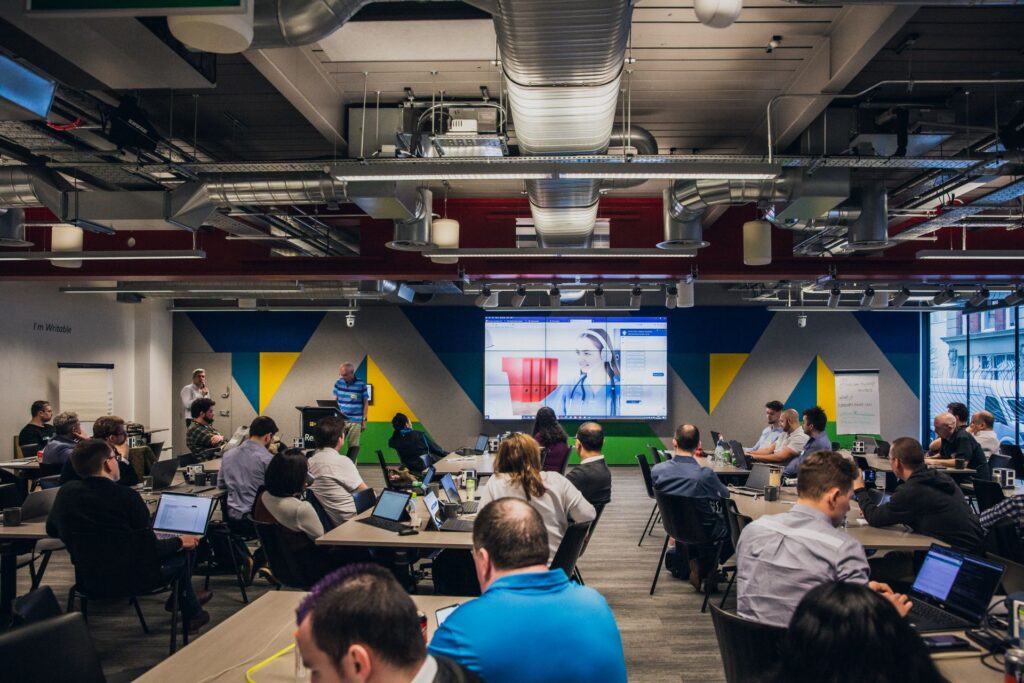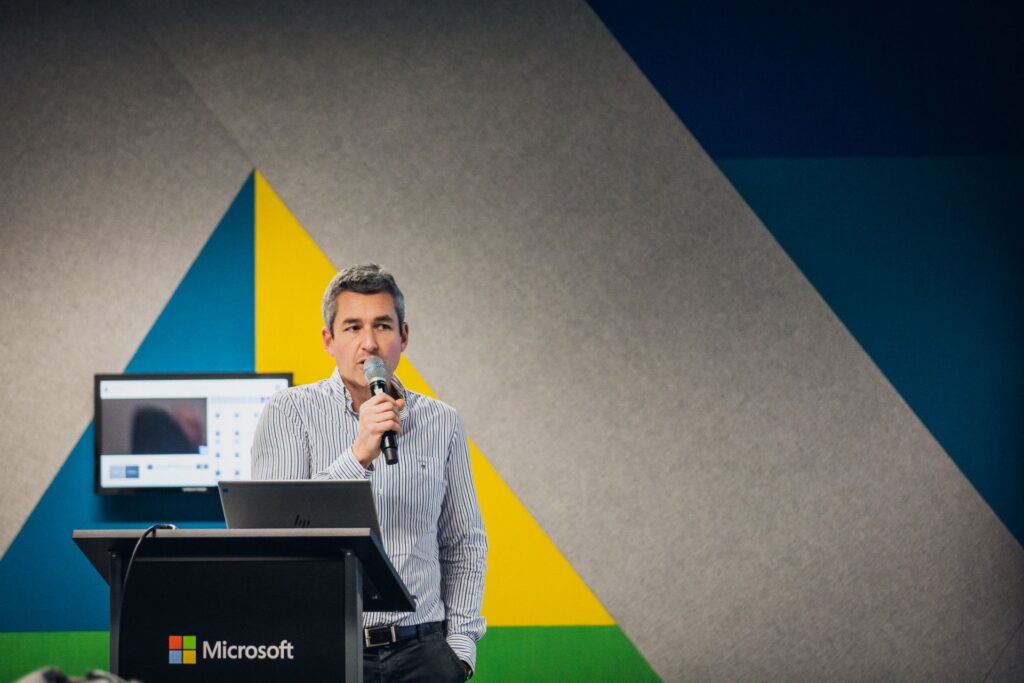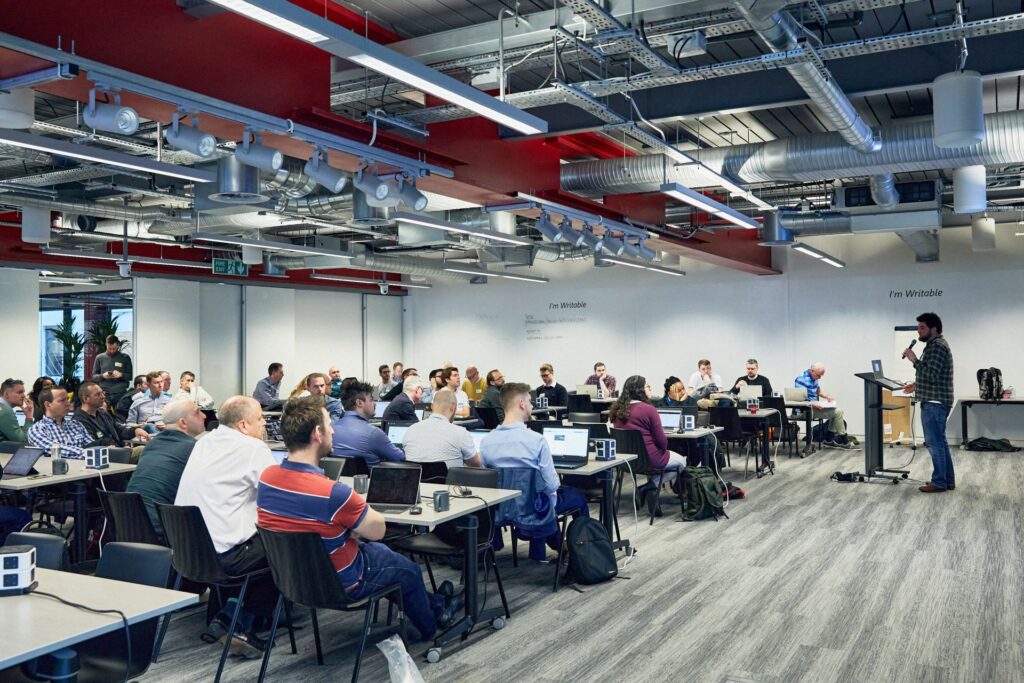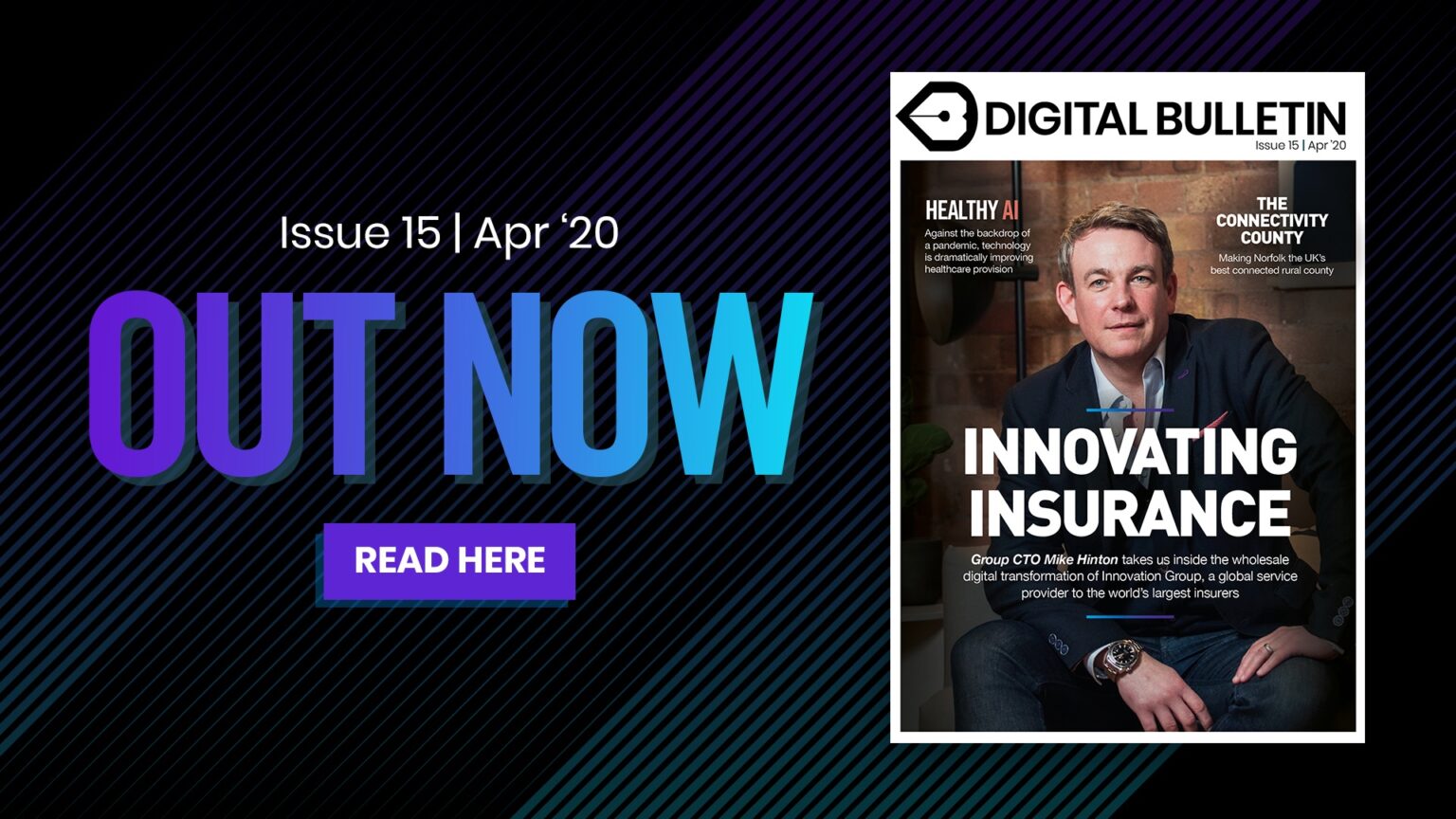
As the human race continues its collective fight against the coronavirus pandemic, healthcare systems all around the world are operating under unimaginable strain.
The rapid outbreak of the novel coronavirus and COVID-19, its associated disease, has, like nothing in recent history, tested the people, infrastructures and practices that enable our healthcare services.
Technology’s leading companies have taken unprecedented steps to help, working alongside the World Health Organization and relevant healthcare institutions and agencies in the most affected areas. Whether it’s advising the White House on strategy, supporting the rapid development of new solutions or creating multi-million dollar COVID-19 funds, few could accuse Silicon Valley of failing to do its bit.
This has brought the interrelation between healthcare provision and technology back into focus – a relationship that has historically struggled to realise its potential to improve delivery and change people’s lives. Why is the healthcare sector often viewed as behind the curve when it comes to technology innovation?
“Of all the public sector areas that we deal with, health is easily the most difficult,” says Martin Neale, CEO and co-founder of ICS.AI, a company whose very purpose is to introduce cutting-edge technology – specifically artificial intelligence (AI) – to fields like healthcare.
“I don’t mean it’s the most difficult problem, although it is a difficult problem, it just seems the least able of all of the areas to step up and address these changes because they are essentially in a quagmire.”

The “quagmire” Neale refers to is how the constant struggle to meet demands – never more evident than in the current COVID-19 emergency – is a roadblock to positive change, particularly in nationalised models like the United Kingdom’s National Health Service (NHS). With budgetary constraints and a relentless focus on patient care, digital excellence has most often taken a backseat.
This problem is echoed by Neil Howell, a cardiothoracic surgeon with more than 20 years of frontline NHS experience who has developed a special interest in how AI can lead to clinical and organisational transformation in healthcare services.
“I think the big issue with healthcare in general is that there have been problems of such inordinate scale and complexity that, mostly, people haven’t even tried to solve any of those problems,” Howell explains. “What we’ve tended to do is use manpower, asking staff to do an inordinate amount of work just to make the system work.
“The problem is that there’s never been a need previously to make these pathways efficient, because why should you when you can ask a keen young doctor to work another six hours? But the bottom line is that it has become unsustainable because medicine has become too complex.”
Neale and Howell each gave up their time to Digital Bulletin at an event designed to actively highlight how AI can go some way to resolving this historical problem. Hosted by the Microsoft UK Health Team, ICS.AI and UI Centric at London’s Microsoft Reactor – pre-pandemic – earlier this year, the “Azure Health Hack” pitched experts from the three companies with their customers and partners.
The aim of the hack was to demonstrate how AI can be applied in healthcare organisations to power transformation, with hack streams looking at the scope for digital assistants and the potential in mobile medical consultations.
“We just had an idea to make a bit of a splash around AI in health to kick start 2020,” says Rob Orwin, Technology Strategist at Microsoft and a speaker at the event. “There’s lots of pre-canned stuff we could have done which is just Microsoft content, but by getting specialist partners in like ICS.AI to show what kind of value-added services they have on top of it and what tools and skills they have, participants would definitely get more out of it.”

"I think the big issue with healthcare in general is that there have been problems of such inordinate scale and complexity that, mostly, people haven’t even tried to solve any of those problems" - Neil Howell
The idea was fairly simple: for groups of developers to link up with experts from the three hosting companies and thrash out their AI concepts, all over the course of an afternoon.
One company was able to develop a bot for checking medicines; the technology could scan a medicine pack to ascertain if it was in date, whether it was authentic and if it had already been pre-dispensed to another patient. “This was creating a bot-based user experience at the front-end meaning that a nurse on a ward could check medicine packs using their mobile device,” explains Orwin.
Another attendee in the ICS.AI hack stream presented the issue of their IT service desk being bombarded with requests during a cloud migration. Information could be found in a lengthy Q&A document but workers simply weren’t using it – so it was converted into an intelligent bot that could respond with answers.
A similar example for leadership communication was initiated by another healthcare IT leader at the event, and Orwin believes these use cases demonstrate that the benefits of AI don’t necessarily have to come with the commitments that many might expect.
“There’s a fear of the unknown but the whole point of the hack was to show that AI doesn’t have to be a complicated data science project,” he states. “You can just use it to take away the onerous tasks from humans while you’re running these projects. It can be low-cost, easy to set up but reliable, compliant and secure.”
Howell backs up Orwin’s point from a healthcare perspective, adding: “There’s a multitude of areas that AI will be able to transform medicine, without a doubt, but I think actually where the immediate wins are is in making processes more efficient, allowing doctors and nurses more time to practise medicine and nursing. That’s absolutely the first way we should be looking at implementing AI into all sorts of healthcare systems.”
For Neale and ICS.AI, achievability is also one of its core messages. Potential customers commonly associate AI projects with long lead-in times and high costs but Neale says the reality is different.
“The hack was really about letting people know that things which two or three years ago were science fiction are now available at a price point that allows them to use them. The cost is nothing like what you might imagine it is – people again assume that because it’s AI it’s millions of pounds, but you can actually do quite a lot with tens of thousands of pounds because hyper-vendors like Microsoft have democratised it.”

ICS.AI is the UK’s first Microsoft AI Inner Circle Partner. The partner programme is for companies who provide custom services or enhanced AI product solutions that utilise Microsoft’s own AI technologies. The team behind ICS.AI was previously in the intelligent automation market before adding AI capabilities through its FLEX AI bots. It now works with a host of public sector bodies to revolutionise user experiences.
Neale and ICS.AI firmly believe that AI transformation will overtake digital transformation as machine learning engines combine with AI-based conversational interfaces to solve issues faster for users and drive new efficiencies.
“AI technology will supersede digital transformation technology and the typical problems that you seek to solve using traditional technologies, you will now use AI technology,” asserts Neale.
“With digital transformation, it requires that you go through all the logical steps in order to be transformed. You can’t really jump over things, but the reality with AI transformation is that you can do quite a lot without having to do that. For example, one of the most attractive elements of the conversational interface is that you’re completely abstracted from the system that is providing the data or the function.
“If I’m in a hospital, I’ll have loads of backend systems. But I don’t have to modernise my platform to provide a conversational interface, firstly, and I don’t have to modernise my platform to provide a consolidated data source because that’s what knowledge graphs do. I’m able to leave all that in situ and create intelligent automation and workflows amongst it. Suddenly you have a realistic chance of solving a problem.”
Neale’s passion for cracking the issues around technology adoption in healthcare shines through, and together with Microsoft, ICS.AI is making genuine inroads. Digital assistants are now on the market to provide conversational healthcare experience at scale to patients, ward staff and medical staff, while clinical knowledge graphs and neural networks exist to pump out insights at hyper-scale.
Microsoft CEO Satya Nadella has also made healthcare one of his organisation’s key priorities, so evidence is there that trend lines are finally leaning in the right direction for healthcare provision and technology. The final question to Neale centres on where the future is going, both in the short and long-term, and the number one AI concern: jobs.
“It’s a self-service future,” he concludes. “We as consumers are used to buying what we want on Amazon, for example. What we’re trying to do is provide that level of digital engagement in sectors like healthcare and that’s the immediate future. The reality of more complex AI taking our jobs is just way, way out in the future. There’s no technology that is currently available that allows that to realistically happen – and ultimately none of us want that to happen.
“I saw an underreported and enlightening piece done by McKinsey which looked at the impact of AI on jobs, and there was a net huge increase in jobs as a result of it because there are new categories of work being introduced. The jobs will change – and there definitely are jobs that are likely to be replaced – but the net position is an increase.”



